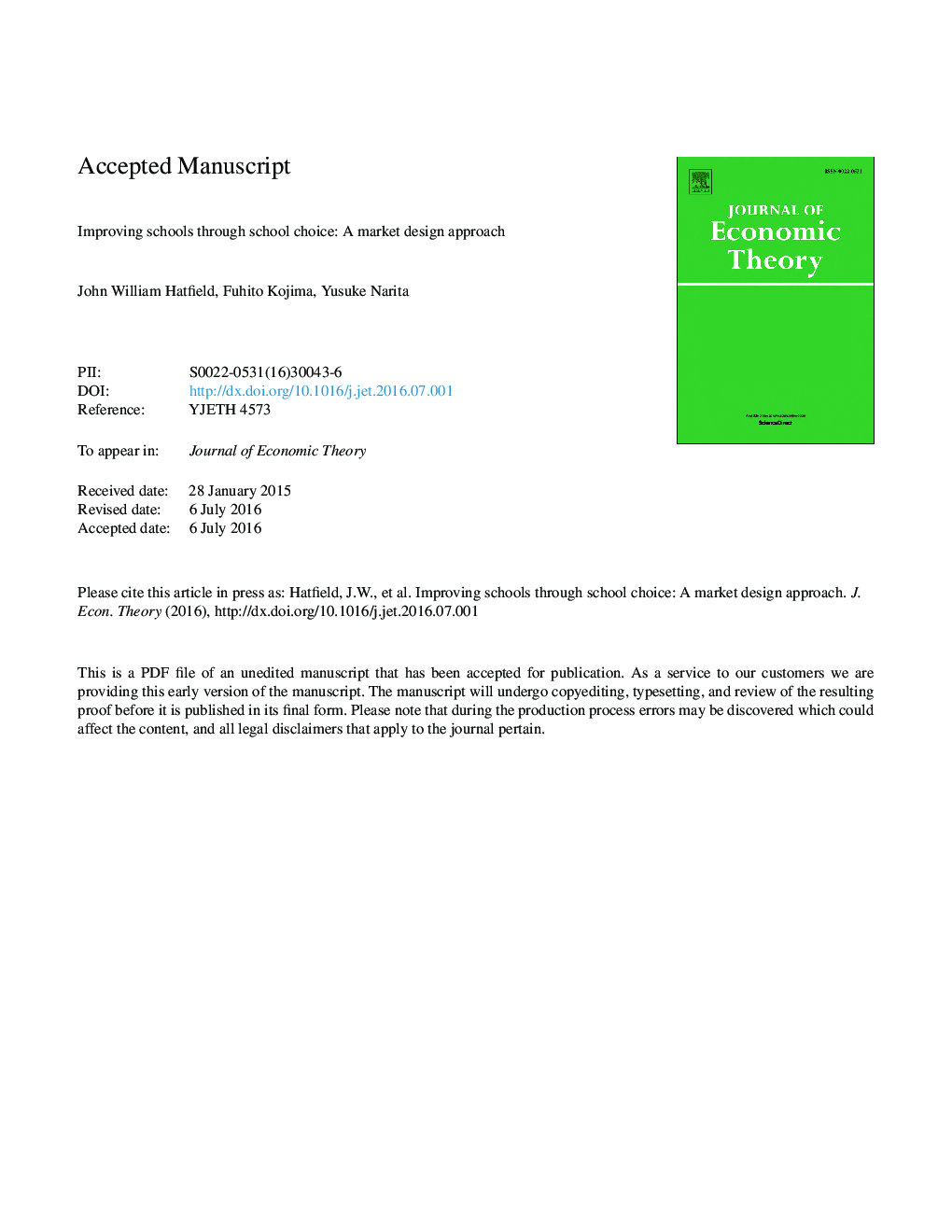| Article ID | Journal | Published Year | Pages | File Type |
|---|---|---|---|---|
| 7359367 | Journal of Economic Theory | 2016 | 36 Pages |
Abstract
We study the effect of different centralized public school choice mechanisms on schools' incentives for quality improvement. To do so, we introduce the following criterion: A mechanism respects improvements of school quality if each school becomes weakly better off whenever that school improves, i.e., becomes more preferred by students. We first show that neither any stable mechanism nor mechanism that is Pareto efficient for students (such as the Boston and top trading cycles mechanisms) respects improvements of school quality. Nevertheless, for large school districts, we demonstrate that any stable mechanism approximately respects improvements of school quality; by contrast, the Boston and top trading cycles mechanisms fail to do so. Thus, a stable mechanism may provide better incentives for schools to improve themselves than the Boston and top trading cycles mechanisms.
Related Topics
Social Sciences and Humanities
Economics, Econometrics and Finance
Economics and Econometrics
Authors
John William Hatfield, Fuhito Kojima, Yusuke Narita,
